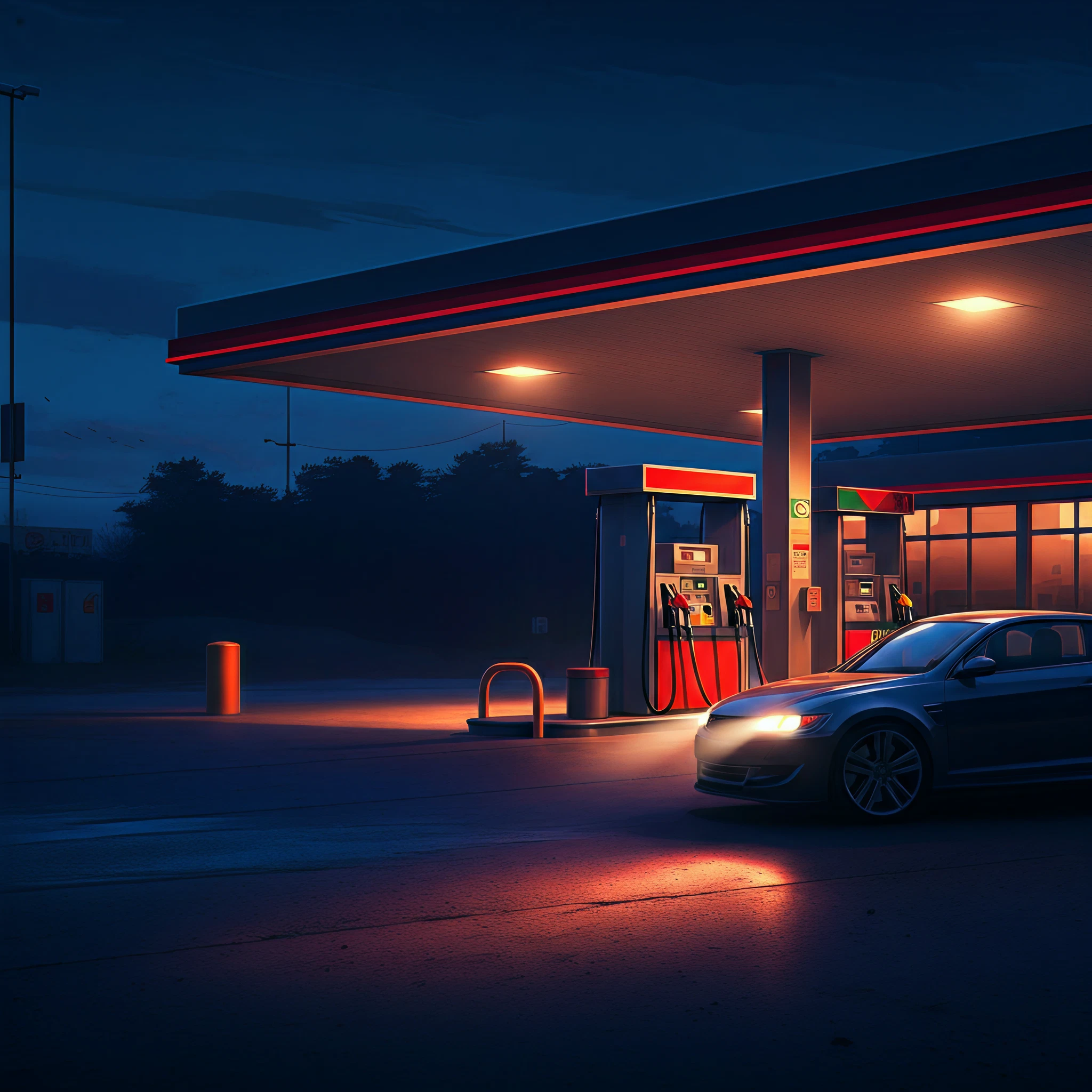Refueling your vehicle is a routine task, but have you ever wondered why nearly every gas station sports bold “NO SMOKING” and “STOP ENGINE” signs near the pumps? Leaving your car on while pumping gas might seem harmless, but it carries significant safety, environmental, and financial risks. This guide will answer the question, explain the dangers, and provide actionable tips to keep you and others safe.
Why Do People Leave Their Cars Running?
While fuel efficiency advocates and cautious drivers religiously adhere to switching off their car engines when refueling, some still leave them running. Why?
- Convenience – Drivers may not want to idle their vehicle off, especially during extreme weather, to maintain air conditioning or heating.
- Unawareness – Many people might not know or believe there’s a real danger involved in leaving the car on.
- Ignorance of gas station safety signs – Some people tend to ignore posted warnings, either out of habit or because they think the risks are overstated.
But does convenience outweigh the risks? Absolutely not.
The Risks of Leaving Your Car On While Pumping Gas
1. Potential Fire Hazards
Gasoline vapors are extremely flammable. When you leave your car running, sparks from your vehicle’s ignition system, static electricity, or a mechanical fault could ignite gasoline vapors around the pump. Though rare, such incidents have happened and can turn catastrophic in seconds.
Additionally, static electricity generated from your movement in the car seat or your body can lead to spark generation when touching the fuel nozzle.
Real Consequences: A situation involving spilled gasoline and a running engine could result in fuel vapor ignition. While modern pumps have vapor recovery systems, they can’t eliminate all vapor concentrations.
2. Environmental Damage from Fuel Spills
Leaving your car on increases the chances of accidents like pulling the nozzle out prematurely or spilling gasoline near hot vehicle parts. Not only does this heighten the fire risk, but it also causes soil and water contamination.
Even seemingly small fuel spillage has long-lasting environmental impacts, harming soil and possibly polluting groundwater sources.
3. Legality and Regulatory Compliance
Many jurisdictions enforce strict safety protocols at gas stations, including requiring engines to be turned off while refueling. Failing to follow these practices could result in penalties or fines. Gas stations often reserve the right to stop service if a customer violates safety rules.
4. Fuel Efficiency Issues
Allowing your car to idle consumes fuel unnecessarily. While this may not seem significant for a brief stop, it adds up over time. Idling also contributes to emissions, impacting air quality and increasing your vehicle’s carbon footprint.
Switching off your vehicle during refueling saves gas, ensures compliance with safety regulations, and reduces wear on your engine and battery.
5. Overheating or Engine Damage Risks
Leaving your car on during extended refueling can strain your vehicle’s cooling system, especially on hot days or during summer. If your engine overheats, it could lead to costly repairs.
Safety Tips for Refueling Your Vehicle
To protect yourself, your passengers, and everyone else at the pump, always follow these best practices:
- Turn Off the Engine
Switch off your car completely before you pick up the nozzle. Even if it’s just a quick refuel, this step reduces major risks.
- Avoid Using Electronics
Do not use mobile phones or other electronic gadgets while refueling. Static electricity generated from these devices can interact with gasoline vapors, creating an ignition spark.
- Ground Yourself Before Refueling
Touching the metal part of your car before handling the fuel nozzle ensures proper grounding, preventing static buildup.
- Do Not Overfill the Gas Tank
Watch the fuel gauge and avoid topping it off beyond the recommended amount. Overfilling increases spillage and fire risks.
- Handle Spills Responsibly
If fuel spills, immediately notify the gas station attendant. Gasoline vapors from spilled fuel pose serious risks to everyone nearby.
- Keep Children and Pets Safe
If you’re traveling with children or pets, ensure they remain safe inside the vehicle while you refuel. But always switch OFF your engine if you’re near the pump.
- Don’t Smoke
Smoking at a gas station is not only prohibited but highly dangerous due to the flammability of gasoline vapors.
- Follow Posted Safety Signs
Gas stations prominently display safety protocols for a reason. Follow their signage and instructions meticulously to prevent unnecessary hazards.
Common Myths Debunked
“Diesel vehicles are safer to refuel with the engine running.”
While it’s true that diesel is less flammable compared to gasoline, leaving the car on is still risky. Risks extend beyond fuel ignition and include static electricity or accidental spillage.
“It takes too long to restart my car.”
Modern vehicles are designed for quick ignition. The mere seconds saved by leaving your car on do not justify the significant risks posed.
“Modern fuel pumps are safe enough to handle any situation.”
Though pumps have built-in safety features, they are not foolproof and rely on customers adhering to basic safety precautions, such as turning off engines and avoiding distractions.
Final Thoughts
Leaving your car on while pumping gas introduces unnecessary risks—from fire hazards to environmental consequences. The simple act of switching off your engine protects lives, ensures compliance with safety standards, and contributes to a cleaner environment.
Taking precautions isn’t just a matter of safety; it’s about being a responsible driver and citizen. Next time you pull up to the pump, remember these tips and refuel with confidence.
Want more articles like this or have safety questions about your car or fuel? Stay informed and prepared by exploring our resource center.








